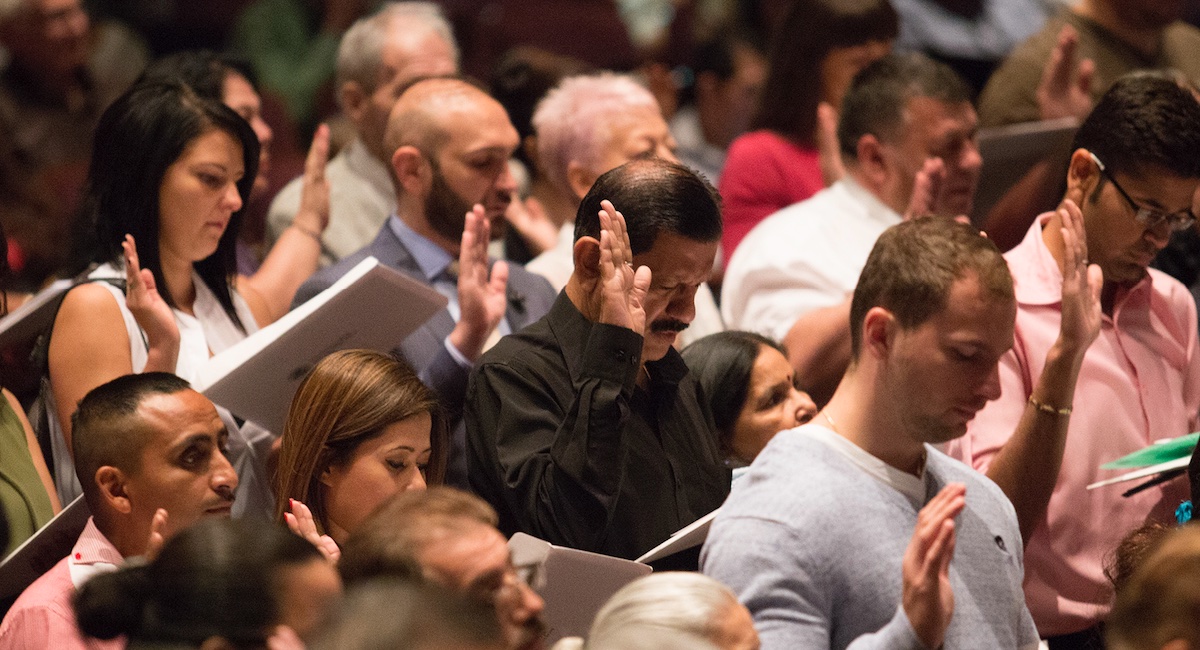Becoming a US citizen is about to get more expensive, reports the Spanish-language outlet La Opinión, with USCIS announcing a 5 percent increase in fees for processing naturalization applications.
The increase, scheduled to take effect April 1, will raise the current fee by $35 bringing the total to $760. Though, per USCIS, reduced fees will be available to low-income families.
This is the first fee increase since 2016. In a statement, USCIS Dir. Ur Jaddou said the increase was intended to offset rising operational costs at the agency, which, she said, receives little federal funding and is reliant on service fees.
“For the first time in more than seven years, USCIS is updating our fees to better meet the needs of our agency, allowing us to provide more timely decisions to those we serve,” Jaddou said. “Despite years of inadequate funding, the USCIS workforce has made great strides in customer service, reducing backlogs, implementing new processes and programs, and advocating for fairness, integrity and respect for all those we serve.”
The move has been criticized by advocacy groups including The National Association of Latino Elected and Appointed Officials (NALEO), which noted that given recent inflation woes and ongoing economic uncertainty raising fees could put an additional burden on families already struggling to make ends meet.
“Any fee increase raises the barriers to naturalization for many applicants,” said Arturo Vargas, executive director of NALEO. “We recognize that USCIS has made progress in addressing barriers to naturalization, but given the current economic environment and other factors, the increase represents an additional hurdle to the many challenges faced by lawful permanent residents (LPRs) on their path to U.S. citizenship, especially for low-income residents.”
Because the new USCIS fees would allow for a lower cost of naturalization through an online process, Vargas urged that the process be improved.
“While the USCIS final fee rule retains and codifies the existing fee waiver eligibility requirements, we urge the agency to make the naturalization application form available online,” he expounded. “We appreciate that USCIS has established a lower filing fee for online applicants ($710) than for paper applicants, but those who apply for a fee waiver or request a reduced fee cannot file online, which prevents them from accessing the lower online application fee.”





